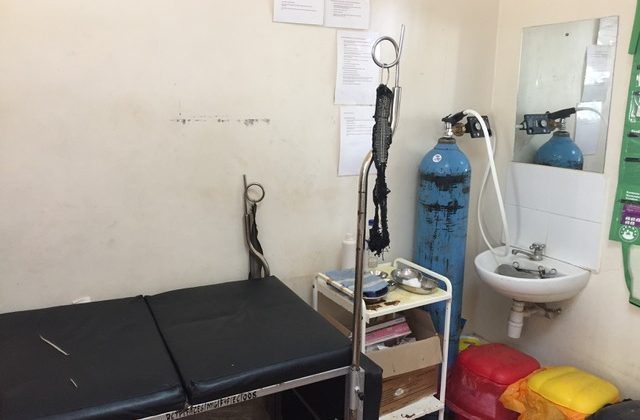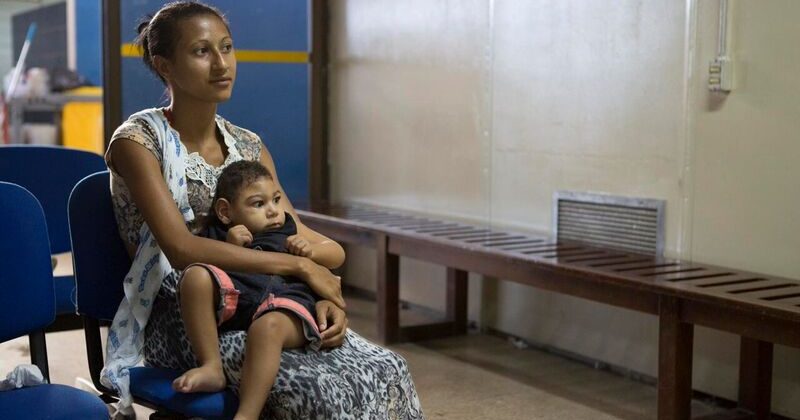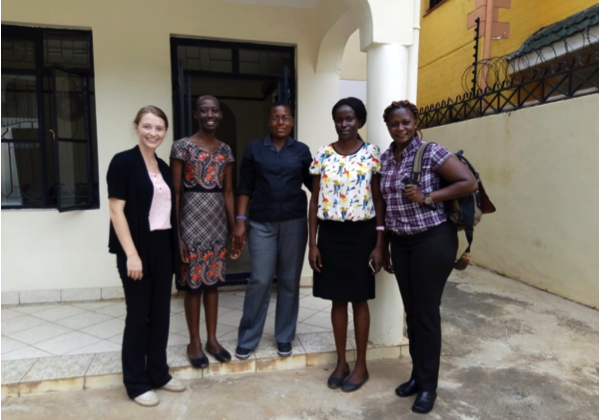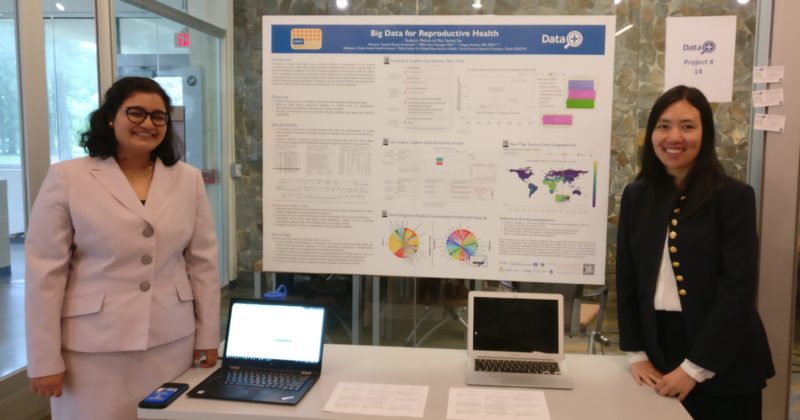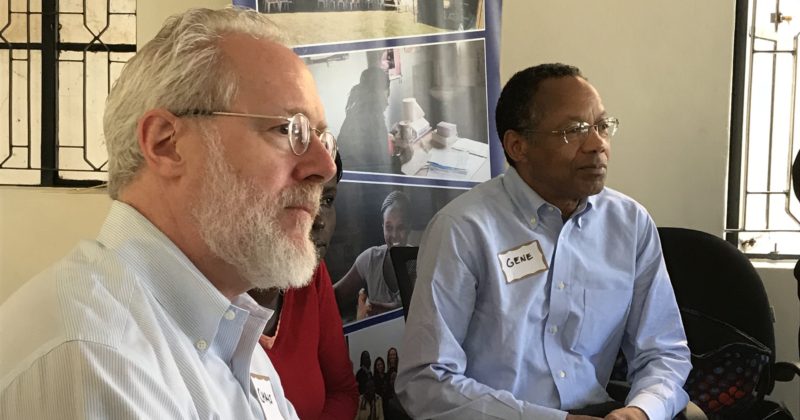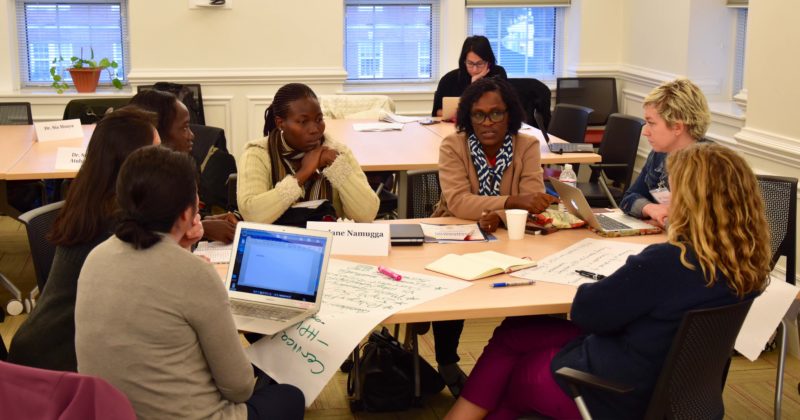
Partner Updates: Uganda
Our Ugandan colleagues at the Makerere College of Health Sciences have been busy over the past few months. Center members’ work has focused on various aspects of cervical cancer, from prevention to diagnosis and treatment. Dr. Miriam Nakalembe is still leading the NCI-funded effort to evaluate community-based strategies for cervical cancer detection, in partnership with Dr. Megan Huchko. Building on this work, she is a co-investigator on a recently funded two-year project through the Fogarty International Center. The grant seeks to develop a portable imaging technique, called a smartphone confocal endoscope. The new technology would visualize cellular details of human cervix in vivo without taking a biopsy, and after validation would be adapted to provide a low-cost diagnostic tool for other diseases in both resource poor and resource rich settings. Dr. Jane Namugga continues her work with Dr. Paula Lee. The pair have completed data collection for a project to determine rates of completion and adverse events associated with receiving chemotherapy...

